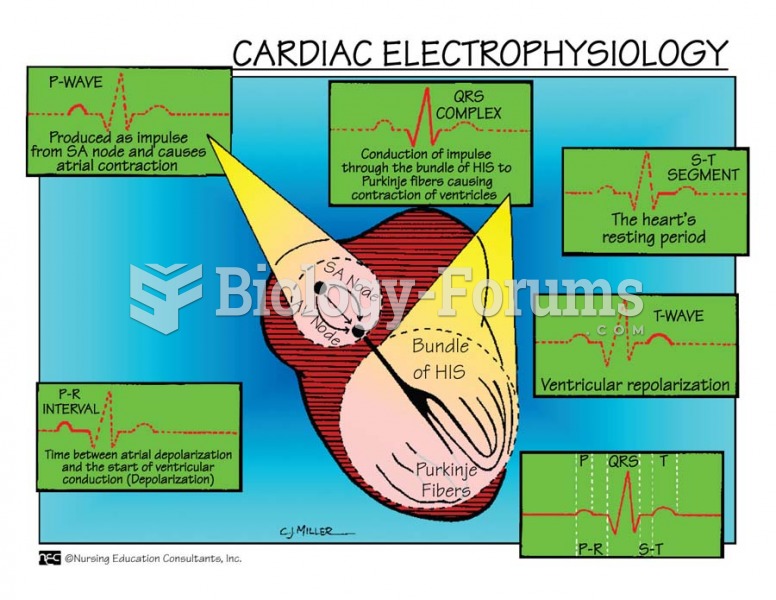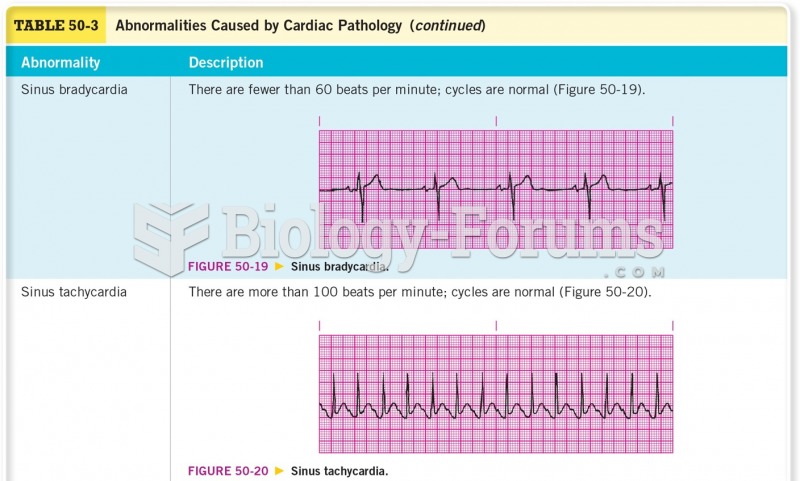|
|
|
Anti-aging claims should not ever be believed. There is no supplement, medication, or any other substance that has been proven to slow or stop the aging process.
When blood is exposed to air, it clots. Heparin allows the blood to come in direct contact with air without clotting.
A recent study has found that following a diet rich in berries may slow down the aging process of the brain. This diet apparently helps to keep dopamine levels much higher than are seen in normal individuals who do not eat berries as a regular part of their diet as they enter their later years.
Anesthesia awareness is a potentially disturbing adverse effect wherein patients who have been paralyzed with muscle relaxants may awaken. They may be aware of their surroundings but unable to communicate or move. Neurologic monitoring equipment that helps to more closely check the patient's anesthesia stages is now available to avoid the occurrence of anesthesia awareness.
Pubic lice (crabs) are usually spread through sexual contact. You cannot catch them by using a public toilet.
 Pericardial effusion: A, normal pericardial sac; B, pericardial sac with excess fluid possibly causi
Pericardial effusion: A, normal pericardial sac; B, pericardial sac with excess fluid possibly causi
 Defibrillator. Defibrillators are devices that supply a voltage charge to the heart in the hope of r
Defibrillator. Defibrillators are devices that supply a voltage charge to the heart in the hope of r





